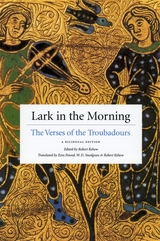
Bhāviveka (ca. 500–560 CE) lived at a time of unusual creativity and ferment in the history of Indian Buddhist philosophy. The Mahayana movement was emerging as a vigorous and self-conscious intellectual force, while the earlier traditions of the eighteen “schools” (nikaya) resisted the authority of the Mahayana and continued to elaborate the fundamental concepts of Buddhist thought.
Bhāviveka’s “Verses on the Heart of the Middle Way” (Madhyamakahrdayakārikā) with their commentary, known as “The Flame of Reason” (Tarkajvālā), give a unique and authoritative account of the intellectual differences that stirred the Buddhist community in this creative period.
Bhāviveka and His Buddhist Opponents gives a clear and accessible translation of Chapters 4 and 5 of this text: the chapters on the Śrāvakas, or eighteen schools, and the Yogācāra, Bhāviveka’s most important Mahayana opponents. The translation is introduced by an essay that situates Bhāviveka in the intellectual context of sixth-century India, and it is accompanied by copious notes, commenting on Bhāviveka’s sources and explaining his controversial method. The book also contains a critical edition of the Sanskrit text of Bhāviveka’s verses and the Tibetan translation of the verses and commentary.

Lark in the Morning honors the meter, word play, punning, and sound effects in the troubadours' works while celebrating the often playful, bawdy, and biting nature of the material. Here, Robert Kehew augments his own verse translations with those of two seminal twentieth-century poets—Ezra Pound and W. D. Snodgrass—to provide a collection that captures both the poetic pyrotechnics of the original verse and the astonishing variety of troubadour voices. This bilingual edition contains an introduction to the three major periods of the troubadours—their beginning, rise, and decline—as well as headnotes that briefly put each poet in context. Lark in the Morning will become an essential collection for those interested in learning about and teaching the origins of Western vernacular poetry.
READERS
Browse our collection.
PUBLISHERS
See BiblioVault's publisher services.
STUDENT SERVICES
Files for college accessibility offices.
UChicago Accessibility Resources
home | accessibility | search | about | contact us
BiblioVault ® 2001 - 2024
The University of Chicago Press









